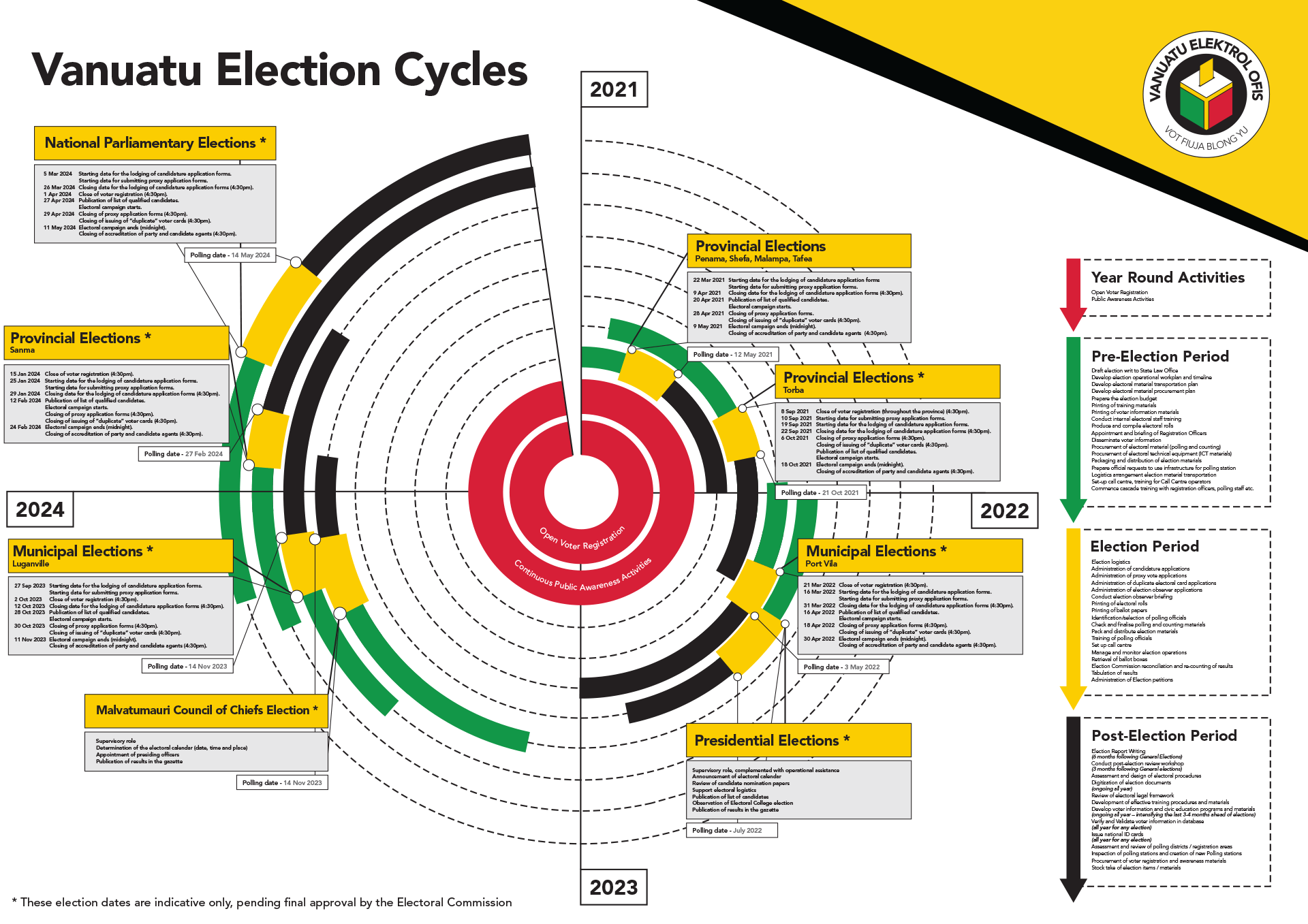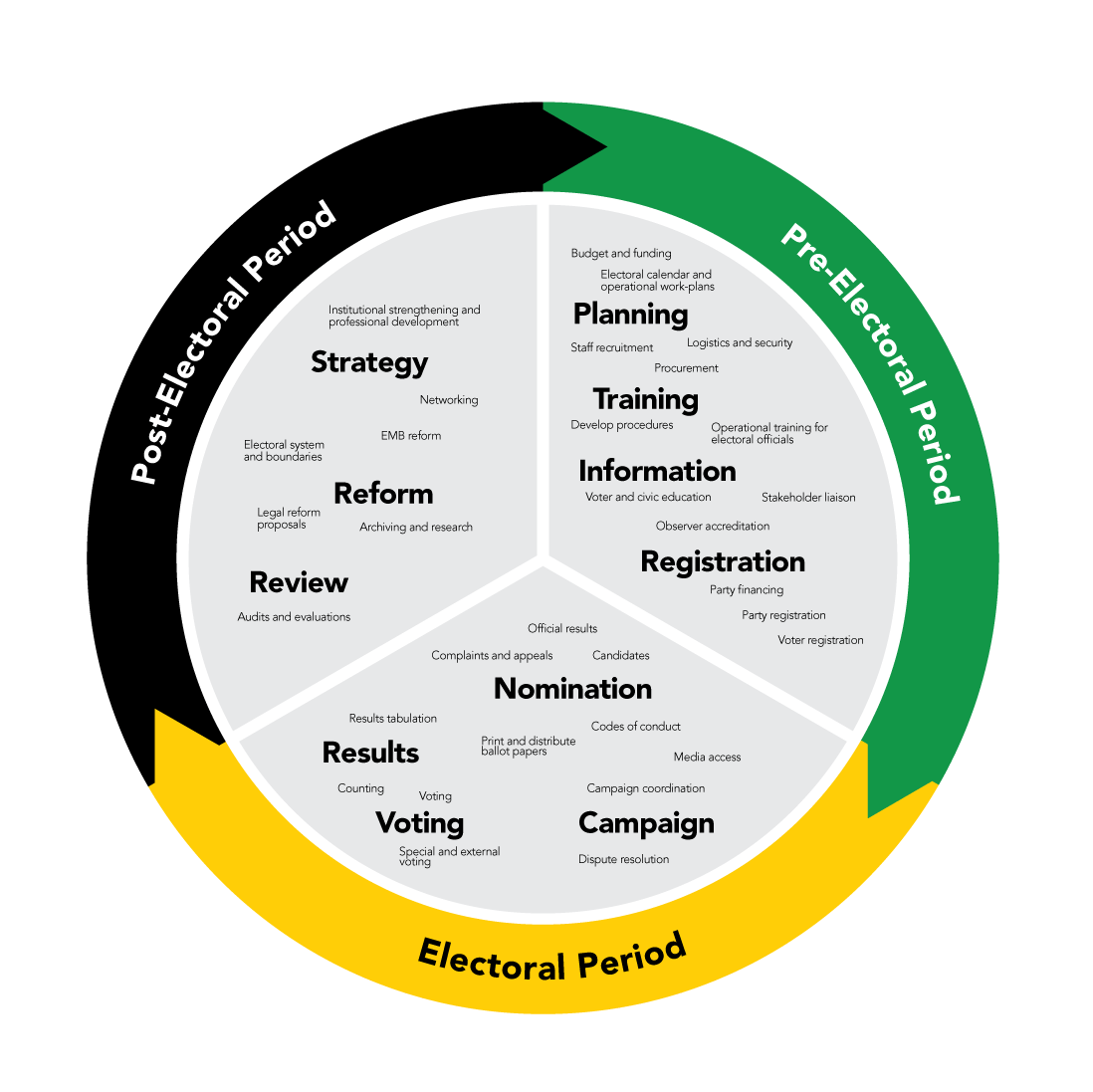THE ELECTION PROCESS
Elections in Vanuatu are a cyclical process. There are constantly new elections that need to be prepared for or reviewed. This process is outlined below.
An Explanation of the Election Cycle
The Electoral Cycle is a visual overview and planning tool designed to comprehend the cyclical nature of the various challenges faced in electoral processes.
The electoral cycle appreciates elections as continuous processes rather than isolated events. At general level, the electoral cycle is divided in three main periods: the pre-electoral period, the electoral period and the post-electoral period. Notably, the electoral cycle has no fixed starting or ending points, and some post-electoral period activities may still be ongoing when activities related to the subsequent electoral cycle commence. Similarly, some segments, such as continuous voter registration or on-going civic education, cut across the whole cycle and are therefore to be considered ongoing activities throughout all three periods.
Elections are composed of a number of integrated building blocks, with different stakeholders interacting and influencing each other. Electoral components and stakeholders do not stand alone. They are inter-dependent, and therefore the breakdown of one aspect can negatively impact on any other, including on the credibility of the election itself, and thus on the legitimacy of the elected government and the democratisation process of a country and its overall development objectives.
The fusion and cross-cutting of electoral related activities and the inter-dependence of the stakeholders highlights the cyclic nature of electoral processes and stress the need for long-term assistance and capacity-building as opposed to short-term event-based electoral assistance.
The electoral cycle appreciates elections as continuous processes rather than isolated events. At general level, the electoral cycle is divided in three main periods: the pre-electoral period, the electoral period and the post-electoral period. Notably, the electoral cycle has no fixed starting or ending points, and some post-electoral period activities may still be ongoing when activities related to the subsequent electoral cycle commence. Similarly, some segments, such as continuous voter registration or on-going civic education, cut across the whole cycle and are therefore to be considered ongoing activities throughout all three periods.
Elections are composed of a number of integrated building blocks, with different stakeholders interacting and influencing each other. Electoral components and stakeholders do not stand alone. They are inter-dependent, and therefore the breakdown of one aspect can negatively impact on any other, including on the credibility of the election itself, and thus on the legitimacy of the elected government and the democratisation process of a country and its overall development objectives.
The fusion and cross-cutting of electoral related activities and the inter-dependence of the stakeholders highlights the cyclic nature of electoral processes and stress the need for long-term assistance and capacity-building as opposed to short-term event-based electoral assistance.




